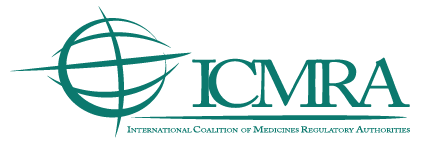Global regulators work towards alignment on policy approaches and regulatory flexibility during COVID-19 – update #3
As part of its coordinated response to the pandemic, the International Coalition of Medicines Regulatory Authorities (ICMRA) convened its regular high-level meeting of regulators from around the world on 27 May 2020 to discuss COVID-19 policies, regulatory aspects of COVID-19 medicine development and pragmatic approaches to address challenges posed by the ongoing pandemic.
ICMRA has established a COVID-19 Working Group to provide in-depth recommendations on priority topics in the context of COVID-19. The main purpose of this working group is to draw on the expertise of regulatory authorities worldwide and assist the coalition in addressing concerns and issues raised during its strategic discussions on policies and regulatory flexibility. The working group held its first meeting in May and will initially work on regulatory criteria for the prioritisation of COVID-19 vaccines, guidance on the prioritisation of clinical trials and the coordination of trial registries. The ICMRA COVID-19 Working Group is chaired by Health Canada and is composed of several delegates from the ICMRA membership.
Participants of the high-level meeting exchanged information about the growing number of medicines that are in development or in clinical trials to assess their safety and efficacy for the treatment or prevention of COVID-19. They noted that clinical trials must be adequately powered, well-designed and include a control arm with standard of care (i.e. standard treatment) to generate evidence upon which decisions can be based. It was highlighted that, as new information is produced continuously, there is the risk for trials to be discontinued early without producing the necessary evidence and knowledge. Participants recommended that, provided the safety of trial participants is ensured, clinical trials should not be discontinued prematurely. They acknowledged the importance of striking a balance between speed and safety by supporting the rapid development of COVID-19 treatments but also insisting on the generation of robust data to demonstrate their safety and efficacy and enable decision-making.
Global regulators have implemented flexible and pragmatic approaches to ensure continuity of medicine supply and oversight and to also protect public health in light of the medical emergency presented by COVID-19. For instance, EMA has applied extraordinary measures in different areas of medicine regulation such as inspections of manufacturing facilities, pharmacovigilance corrective and preventive action plans, audits and the validity of good manufacturing practice (GMP) certificates. Guidance for remote good clinical practice (GCP) inspections is being developed in the EU. Other regulators also shared insights into virtual evaluations and remote GCP inspections. Meeting participants agreed that these measures have benefited from digital transformation of regulatory processes during the ongoing pandemic. They concluded that convergence in rolling back exceptional regulatory flexibilities after the crisis and a comprehensive assessment of possible benefits of some of these adaptations in different countries would be critical.
The discussion was moderated by Agnes Saint-Raymond, Head of International Affairs at EMA. The meeting was organised by EMA under the umbrella of ICMRA. It was the fourth in a series of bi-weekly ICMRA meetings organised to allow medicine regulators worldwide to exchange information and build synergies for expediting COVID-19 medicine and vaccine development and approval and for preventing and mitigating medicine shortages. These strategic discussions build on the knowledge and experience gained from the series of ICMRA workshops on COVID-19 medicine development held between March and May 2020. EMA and FDA are taking turns in chairing these meetings.
Notes
- More information on the work of the European Medicines Agency can be found on its website: www.ema.europa.eu

